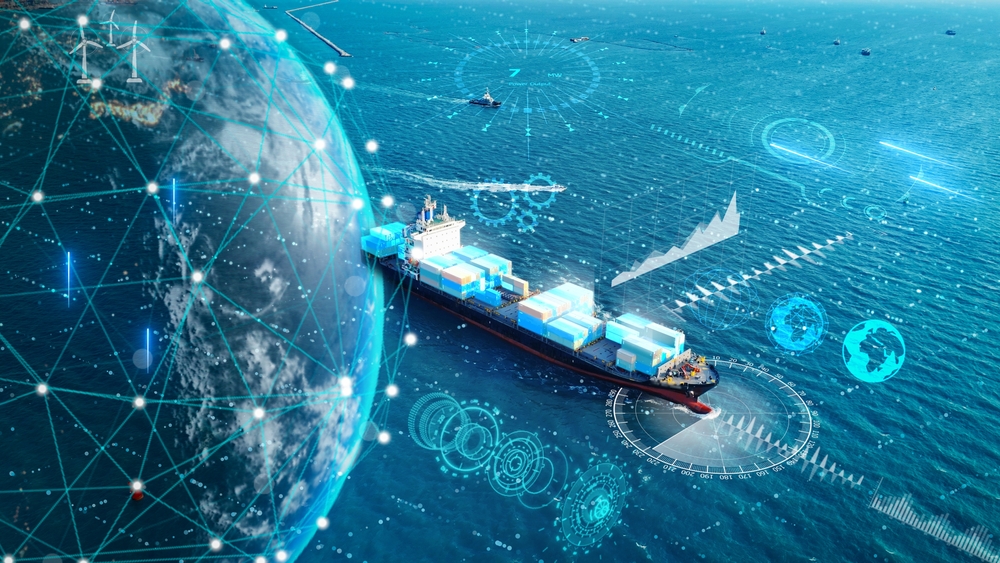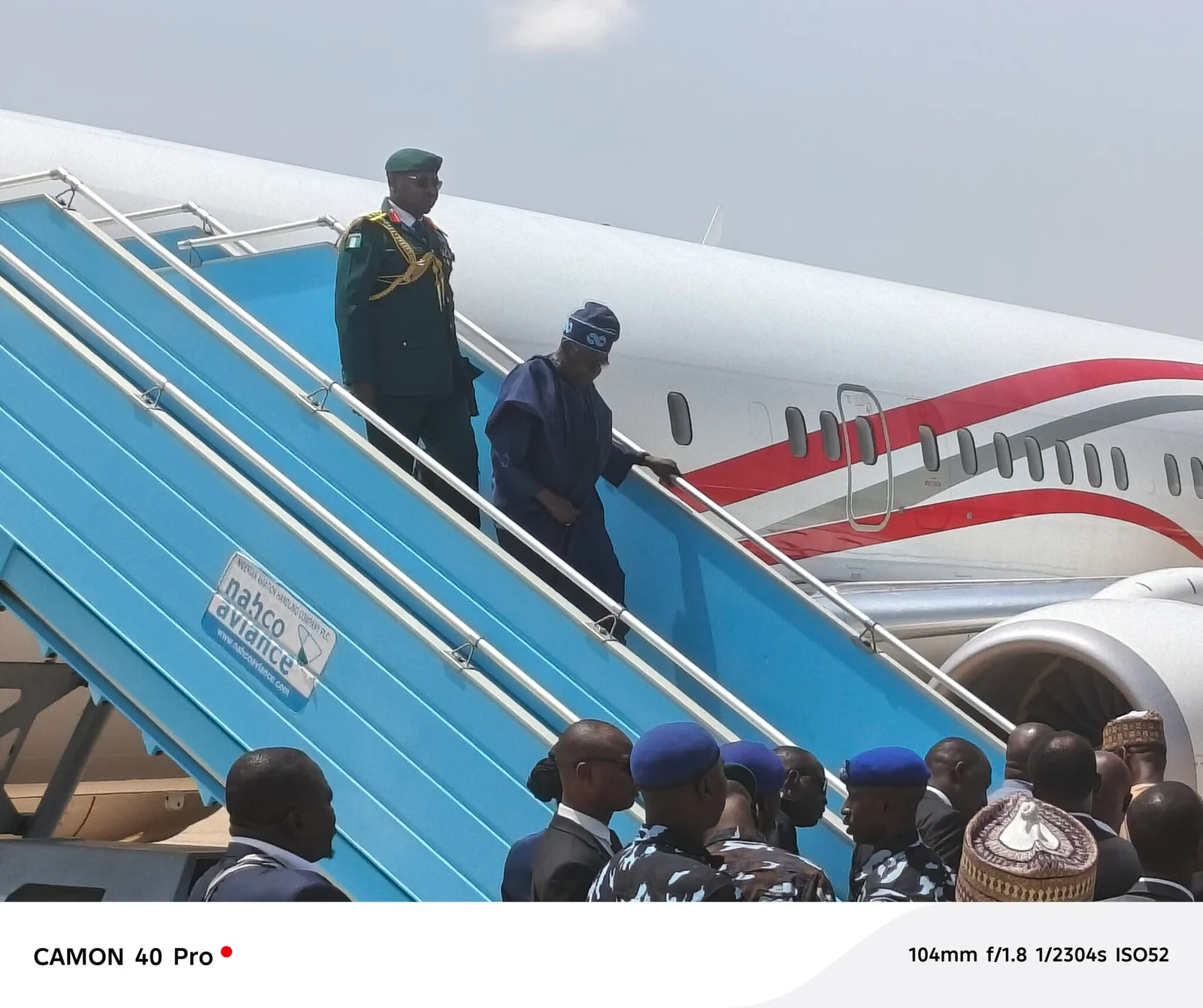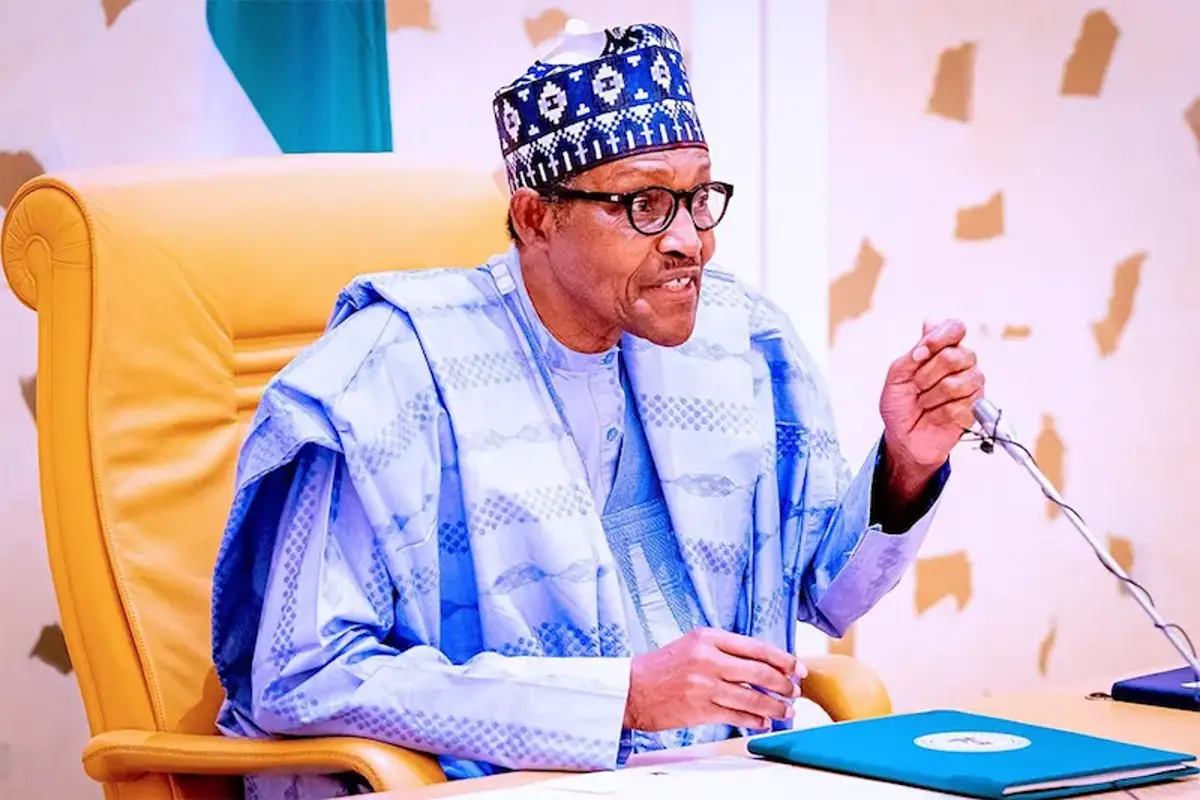News
The Price of Neglect: The Economic Impact of Cyberattacks on Maritime Operations

The Price of Neglect: The Economic Impact of Cyberattacks on Maritime Operations
By Abuh Ibrahim Sani
Ports are critical infrastructure to countries economic growth and sustainability. Over 90% of nations around the world depends on importation and exportation of goods. The maritime sector has become an integral part of global trade, connecting markets and facilitating the movement of goods across regions and continents. However, as with other sectors, the growing dependence on digital systems has exposed maritime operations to the growing threat of cyberattack. These attacks have dire economic consequences, as seen in countries like USA, Nigeria, Japan, China, Netherlandwhere maritime industry contribute immensely to their economy.
Understanding Cyberattacks in Maritime Operations
Maritime functions within a complex ecosystem of ports, shipping companies, logistics providers, and regulatory authorities. Over the past two decades, ports have progressively depended on automated information and operational technologies. This digital reliance creates vulnerabilities that, in the case of a hack or incident, might incapacitate economic activities. In July 2024, a software upgrade implemented by cybersecurity firm Crowdstrikeshutdown Windows services globally, resulting in turmoil at airports and interrupting essential infrastructure, including port facilities.Incidents of this nature prompt critical inquiries regarding maritime cybersecurity measures and the potential economic and physical repercussions that may come from a cyber incident. The most common attack include ransomware, phishing, and hacking of critical systems like Automation Identification System(AIS) or terminal operating systems.
The Maritime Sector’s Economic Impact: Insights from Nigeria, USA, Netherlands, and Japan
Maritime is one of Nigeria most critical sector, with its port accounting for over 70% of the region’s trade volume in West Africa. The industry has significantly contributes to Nigeria’s Gross Domestic Product(GDP), facilitating oil exports, which makes up over 90% of the country’s foreign exchange earnings. Surprisingly, the country’s maritime industry is vulnerable to cyber threats due to limited cybersecurity professionals, measures and the usage of legacy systems still in existence. More than 95% of cargo entering the United States is transported via ship and port activities, contributing approximately $5 trillion to the annual economy.The marine industry in Japan is vital to its economy, particularly due to the country’s dependence on maritime transport for over 99% of its international trade and the transportation of products and passengers among its many islands.
The marine sector is fundamental to the Dutch economy, embodying the Netherlands’ extensive nautical legacy and critical role as a European trading center. In 2022, the maritime cluster, which includes shipping, shipbuilding, ports, and maritime services, generated a revenue of €95.2 billion. This activity produced a direct added value of roughly €25.9 billion, with an indirect contribution of €5.2 billion, resulting in a total of €31.1 billion.
Notable Incident of Cyber attacks
The International Maritime Organization (IMO) in 2020, fell victims of cyber attack that has ripple the effect of global maritime operation. In 2023, a major ports in Japan suspend operation due to ransomware attack which believes have emanated from Russia. The Port of Nagoya, responsible for approximately 10% of Japan‘s overall trade volume and managing some automobile exports for corporations such as Toyota, suspended its cargo operations on Tuesday, including the loading and unloading of containers onto trailers, following the incident.These incidents revealed weaknesses and highlighted the economic implications associated with cybersecurity in the maritime sector.
Impact of Cyber-attacks on Nations Economy
Cyberattacks often lead to operational downtime in ports resulting in delays of cargo handling and shipping schedules. In Nigeria, where ports like Apapa and Tin Can Island are already struggle with congestion, cyberattack disruptions could exacerbate inefficiencies, causing financial losses for shipping companies and businesses relying of time delivery of their goods.
Frequently cyber incidents lead to higher insurance premiums for maritime operators, insurers factors in cyber risk when underwriting policies, making costlier for shipping companies to secure comprehensive coverage.In every cyber-attack, its comes with consequences which include reputation damage. Cyber incidents destroy the company image and loss of consumer trust. The affected ports or shipping companies would look less attractive to international shipping lines and customers. This reputational destruction can have long-term economic effects, reducing countries competitiveness on maritime environments.
For example, takes Nigeria as the primary exporter of crude oil whose revenue relies heavily on its maritime sector. Cyber attack that disrupt port operations can lead to massive revenue losses. Delay in oil shipment due to compromised systems directly impact foreign exchange earnings and the broader economy.Recovering from a cyberattack involves substantial financial outlays for systems restoration, data recovery, and implementation of upgraded security measures. For a developing economy like Nigeria, these costs can strain already limited resources.
Why Cybersecurity in Maritime Operations Is Essential
The maritime sector is essential infrastructure; thus, preserving its cybersecurity is vital for safeguarding national interests, including energy exports, trade, and employment. A robust cybersecurity framework and measures enhanced the confidence of international stakeholders and customers in marine operations, hence generating increased commerce and investment. Investing in cybersecurity infrastructure and people development is more economical than the financial repercussions of a successful cyberattack. They mitigate risks, facilitating more efficient operations and financial stability.
Steps Toward Strengthening Cybersecurity Maritime Sector
The government of each country, through its marine administration and safety agency, must adopt effective cybersecurity policies specifically designed for the maritime sector. These rules must conform to international standards, including the International Maritime Organization’s principles on maritime cybersecurity. Training for port operators, shipping industry personnel, and other stakeholders on cybersecurity best practices is essential for capacity building. Competent individuals can recognize and alleviate threats prior to their escalation. Upgrading outdated technology systems, implementing modern cybersecurity solutions, and employing AI systems for threat detection will improve resistance against cyberattacks.
The world is a global village due to technology’s profound interconnectedness of our actions. Collaboration among government, business sector, and international partners is key in mitigating cyberattacks. Exchanging knowledge on cyber threats and implementing a cohesive strategy can enhance defenses across continents and regions.Formulating rapid response teams and contingency plans to ensure operations can swiftly recover following a cyber-attack will reducing economic losses and operational decline.
Conclusion
The economic impact of cyberattacks on maritime operations is a stark reminder of the price of neglecting cybersecurity. As the nation’s aspires to be a viable economy powerhouse of their regions, protecting its maritime sectors and national security from cyber threats must be a top priority. Develop a proactive measure, strong polices and strategic investments in technology will not only safeguard the industry but also bolster nations position in the global maritime landscape. The failure of government to act decisively risks costly disruptions, revenue losses, and reduce competitiveness. A price no economy can afford to pay.
Headlines
Tinubu arrives Katsina to receive Buhari’s body for burial

President Bola Tinubu, on Tuesday arrived in Katsina to receive the remains of the former President Muhammadu Buhari, who passed away in London on Sunday at the age of 82.
Headlines
“He Never Turned His Back on the Needy” — Tributes Pour In Ahead of Buhari’s Burial

Just hours before the burial of former President Muhammadu Buhari, heartfelt tributes have continued to pour in from beneficiaries of his many charitable deeds, with many describing him as a man who never turned his back on the needy.
Speaking to the News Agency of Nigeria (NAN) on Tuesday, Aminu Daura, a respected community elder, recalled how Buhari consistently provided foodstuffs during Ramadan for families, friends, widows, and orphans in his hometown.
“He never made noise about it, but many homes had food on their tables during fasting period because of him,” Daura said.
Abdullahi Sani, a physically-challenged man who received a tricycle from the Buhari Foundation in 2021, was overcome with emotion while speaking to NAN.
“I can move around and feed my family today because of Baba Buhari. I pray to Allah to reward him for giving hope to people like me,” he said, in tears.
Hajiya Fatima Yahaya, another resident, remembered Buhari’s acts of kindness during festive seasons.
“Even after he left office, his aides ensured that the usual support still reached us every year. He always remember his people,” she said, referring to his distribution of Sallah rams and food items to indigent families during Eid celebrations.
Other residents of Daura also shared memories of how the late former president quietly paid school fees and medical bills for struggling families, actions rarely publicized.
“Some of us benefited from his silent interventions. He was a true father and a great figure in the society,” said Ali Saidu.
On Monday night, Imams across various mosques in Daura held special Qur’anic recitations, praying for the forgiveness of Buhari’s sins and his eternal peace.
The Chief Imam of Daura Central Mosque, Sheikh Musa Kofar Barau, described Buhari as a humble leader whose legacy of service and compassion would remain alive in the hearts of the people.
Buhari is scheduled to be buried later on Tuesday in his hometown of Daura, Katsina State, in line with Islamic rites. The community is bracing to welcome thousands of mourners from across Nigeria and beyond.
Headlines
King Mohammed VI Mourns Buhari, Praises Legacy of Nigeria’s Former Leader

His Majesty King Mohammed VI of Morocco has extended heartfelt condolences to President Bola Tinubu, the family of the late former President Muhammadu Buhari, and the entire Nigerian people following Buhari’s death.
In a message of sympathy, the Moroccan monarch described the passing of the former Nigerian leader as a “sad occurrence,” expressing deep sorrow over the loss.
King Mohammed VI hailed Buhari as “an illustrious leader who worked untiringly to serve his country’s best interests and lead his people toward further progress and prosperity.”
He added: “Our thoughts and prayers are with you and the bereaved. I share your grief and want you to know how much I appreciated the working sessions I had with the deceased.”
Reflecting on their bilateral engagements, the king noted that his collaboration with Buhari led to the launch of promising development projects, “ushering a new era grounded in friendship and close cooperation between our two sister nations.”
-

 Headlines3 years ago
Headlines3 years agoFacebook, Instagram Temporarily Allow Posts on Ukraine War Calling for Violence Against Invading Russians or Putin’s Death
-

 Headlines3 years ago
Headlines3 years agoNigeria, Other West African Countries Facing Worst Food Crisis in 10 Years, Aid Groups Say
-

 Foreign3 years ago
Foreign3 years agoNew York Consulate installs machines for 10-year passport
-

 News10 months ago
News10 months agoZero Trust Architecture in a Remote World: Securing the New Normal
-

 Entertainment3 years ago
Entertainment3 years agoPhyna emerges winner of Big Brother Naija Season 7
-

 Headlines1 year ago
Headlines1 year agoNigeria Customs modernisation project to check extortion of traders
-

 Economy1 year ago
Economy1 year agoWe generated N30.2 bn revenue in three months – Kano NCS Comptroller
-

 Headlines1 year ago
Headlines1 year agoPhilippines’ Vice President Sara Duterte resigns from Cabinet







